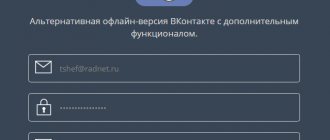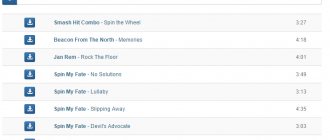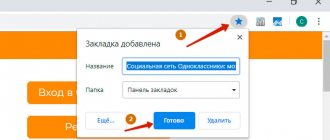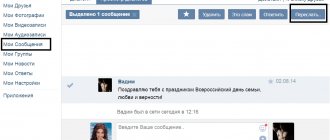Good afternoon brothers and sisters! If you visited my blog, then you are now looking for an answer to your question - “How to log into Yandex, Contact and Odnoklassniki from the territory of Ukraine?” When is access to these sites prohibited? Or you want to know how to access sites that are prohibited in Russia by Roskomnadzor.
On May 16, 2021, Ukraine will block access to popular sites throughout the CIS, such as:
- Yandex is a search engine with Internet portals and services in several countries
- Contact - social network
- Odnoklassniki - social network
In this article we will not delve into the politicization of this decision, for this there are politicians who receive salaries for this (or rather, they steal). Our main task is to remain human and enjoy the benefits of humanity, so let's go directly to the options for bypassing the restrictions for these sites on the territory of Ukraine . I will give more than 10 ways to log into Yandex, Contact and Odnoklassniki from Ukraine? and each of you will choose which method is more convenient for him.
Features of promotion under Yandex (differences from Google.ru)
Now let's return to the problems of webmasters and optimizers - how to promote your website under Yandex? It's not as simple as it might seem at first glance. In fact, for myself, I do not divide promotion for different search engines into separate components (SEO optimization and promotion), but there are nuances and differences and many people focus on them:
- As a rule, when promoting a competitive search query, you should have several pages on the site that would answer this query. One of them will be pumped by you with external links, and the rest will create the appearance that your resource is focused on answering this user request.
- When promoting under Yandex (and under Google.ru, but to a lesser extent), you should take into account that now such a thing as keyword density (independent website promotion) no longer works. Search has an excellent understanding of the peculiarities of the Russian language and is able to make an assessment of the topic of an article according to the vector that it contains.
Those. keywords must be in the article, but in a very limited quantity, and all those words and phrases that, in the opinion of the search engine, should be present in such texts (vector) must also be present.
- Recently, Yandex has been advocating that article texts should not be over-optimized and threatens to punish people for this. It seems to me that re-optimization alone will not be enough to impose a veto - it is necessary that the behavior of users indicates that this text is spam.
- When ranking, it also takes into account the age of the site (not the domain) and its trustworthiness. Google also takes this into account, but to a slightly lesser extent.
- External links influence website promotion in Yandex to a slightly lesser extent than when promoting in Google.
- “Runet Mirror” loves a variety of both link sources and their anchors (texts).
- As I already said, in the domestic search engine the share of commercial queries is significantly higher than in the bourgeois analogue and competition for them will be much higher
- When ranking in search results, Google pays more attention to the page that is most relevant to the request (as if in isolation from the site), and Yandex also evaluates other pages of the same resource, as well as the entire resource as a whole.
- Well, in both search engines, behavioral ranking factors are now actively taken into account when determining the relevance of pages, because they allow a huge number of users to be involved in assessing the quality of a site (for free).
Good luck to you! See you soon on the blog pages KtoNaNovenkogo.ru
Yandex is the search engine everyone needs
It is possible that Yandex is now used to a greater extent by users to satisfy their everyday needs and that is why it is primarily of interest to SEO companies involved in the promotion of commercial sites. But the share of those users who enter information queries in this search engine is still huge, although already comparable to Google’s share (judging by the statistics of my project).
By the way, you can estimate the audience of the largest Russian Internet search engines in a fairly simple way by viewing the statistics of the Livinternet counter. To do this, just look at the statistics of transitions to websites of the RU domain zone from search engines:
It is clear that this is not accurate statistics, because in addition to the Ru domain zone, there are a lot of sites on the RuNet from other domain zones, and not everyone has the LiveInternet counter installed. However, this sample can still be considered representative and it follows from it that Yandex is quite confidently leading in the Russian-language segment of the Internet.
He bit off more than half of the bagel, which is quite a lot, considering the multimillion-dollar RuNet audience. It is clear that Yandex’s share in global search is small (from one to two percent) and Google already categorically reigns there. And in RuNet, if we consider the audience of users entering information queries (who do not need to buy something), the shares of Yandex and Google will be almost the same. I judge this by analyzing the statistics of my blog KtoNaNovenkogo.ru:
But this, of course, is not a representative sample at all, but rather my own IMHO. By the way, if you analyze the position of my site for various popular search queries (for example, you can look at its visibility in Megaindex), you will notice that these two giants often have completely different assessments of the same web pages.
Search engine algorithms converge only in their base, but the details differ strikingly and significantly. A couple of years ago, Yandex introduced a division of search results depending on the region in which the query was entered. Why is this necessary?
But imagine that you are looking for pizza delivery and at the same time you are in one of the provincial cities of Russia. Without using a regional search, you will most likely get golden-domed pizzerias in the first place. Now the “Runet mirror” search is divided into hundreds of regions and you, most likely, will get exactly what you were looking for, and where you are now. Therefore, merchants will promote themselves under Yandex, and users will search for products there. Well, Google is good to use for geo-independent queries.
In general, Google.ru search is slightly behind Google.com in quality and innovation, which, in my opinion, allows Yandex to successfully compete with it in RuNet. Well, a better knowledge of the morphology of the Russian language also gives the domestic manufacturer a certain advantage.
That’s why in this article I want to express respect and respect to Yandex for successfully fighting such a monster as Google on its field. In most countries, Google has taken over their existing search engines, while Yandex (and several other regional search engines) has held its own and has even been confidently leading for many years. All that remains is to admire.
Let's look a little into history and see what exactly provided this company with the advantages that it has now and how this, by far the most successful Internet project in RuNet, developed step by step.
History of the creation and development of Yandex
The founding fathers of Yandex (this is how the name of the search engine was originally written, starting with the Russian letter) are considered to be two people: Arkady Volozh and Ilya Segalovich.
As far as I understand, they knew each other since school, but it was Arkady Volozh who initially made the move towards creating the company. Back in 1988 (for example, I was in school at that time), within the walls of the Institute of Management he worked on the problems of searching large amounts of text.
At that time there was no Internet in our usual sense (read about the history of the creation of the global Internet) and therefore the search was carried out mainly through digital archives of any documents. At that time, the creation of commercial enterprises on the basis of departments of various state institutions was going on very rapidly (I remember how this happened at my mother’s work) and in 1989 Arkady Volozh opened two commercial enterprises at once (for the body and for the soul):
- selling computer equipment (a very profitable occupation at that time)
- , in which he continued, together with colleagues, research in the field of searching large volumes of text materials, taking into account all the rich morphology of the Russian language. It was to work at Arcadia that programmer Ilya Segalovich was invited.
For several years, Arcadia successfully sold its products for searching text archives (International Classification of Inventions and Classifier of Goods and Services) to various research institutes, but then a decision was made to merge the companies due to worsening demand for Arcadia’s software products.
As a result, in 1993, Arcadia employees became employees of the CompTek programming department. Ironically, it is this programming department that will then again be separated into an independent company under the well-known name Yandex (read why Yandex was called that way).
Over the next few years (until 1996), active work was carried out to improve search algorithms and take into account the morphology of the language. During this time, several software products were released (Academic edition of the classics on CD ROM, Bible computer reference book), where all these developments were used, but, as you yourself understand, all this did not make it possible to realize the full potential of search algorithms and did not allow us to seriously earn money. There was practically no Internet in RuNet at that time.
By the way, it was during this period that the name for the developed search technology was invented, namely Yandex, which means “Language Index” . Although there are still many interpretations of the origin of the brand, this does not change the essence. The development team had a desire and conviction that selling the search technology itself would be much more profitable than selling products built on it.
In 1996, at the Netcom exhibition, the company, which at that time was still a department, offered its first products for site search (Yandex.Site) and search by CD content (Ya.CD). Well, as well as a separate product that implements Ya.Lib search technology. In the same year, the company went online and, using the Ya.Dict product, made it possible to make queries in Russian to the AltaVista search engine, popular in the bourgeoisie at that time ( Google didn’t exist yet ).
But all this was not what would allow the company to really develop in all its glory. It lacked its own index of all RuNet sites. Well, the employees of the company (at that time the department) strained themselves and created a search robot, which quickly crawled all the five thousand sites available in the RuNet (at that time) and collected an index text file weighing only four gigabytes.
All. a new website yandex.ru (a project codenamed Yandex-Web) was announced
By the way, the first version of the design for it was drawn by Artemy Lebedev, now known to all of you:
At first, to work with the search engine, it was necessary to enter queries formulated in a special way (using logical operators), but after a few months they got rid of this and the search engine could be addressed as a simple interlocutor. In the same year, a forum was opened to communicate with visitors and solve their problems, which existed until 2008.
Yandex was already at that time successfully combating duplicate content in different text encodings or differing slightly, and identical documents were removed from the search results. In addition, ranking algorithms were used that made it possible to place links to the most relevant (meeting the user's query) documents at the top of the search results.
It turns out that the development of the Internet in RuNet coincided very well with the fact that the Yandex company had previously been working seriously and for quite a long time on the problems of searching in Russian using huge text arrays.
This probably played a decisive role in the further dizzying rise - after all, all he had to do was transfer his developments to the web and pay attention to the development of related services and thinking through ways to extract income from all this. The main thing was to be at the right time and in the right place . Segalovich and Volazh succeeded, for which I congratulate them - well done.
But, as it were, the story does not end there, but, on the contrary, is just beginning. Next year, 1998, work is underway to improve the search engine, new functionality appears for users (search in what was found, find similar documents, etc.), and the design of the main page also undergoes a slight change (getting these screenshots turned out to be quite simple, because There is such a service as an archive of the Internet and all its sites, which acts as a time machine):
In 1999, the Internet began to gain popularity by leaps and bounds in the Russian-speaking segment of the network, and in connection with this, the number of documents indexed by Yandex significantly increased, which it succeeded by launching a new robot that scans Runet sites. In the same year, a new project narod.ru (free hosting and file sharing) was launched, which existed until 2012.
What’s interesting is that starting this year, Yandex seriously took up spam filtering, began to take into account the contents of Alt tags for images, and in addition to the text of the document itself, when ranking, it began to consider the texts of links (anchors) leading to it from other sites on the network (the birth of a full-fledged link ranking). Well, the design of its main page has changed significantly:
My Yandex email login to my page without password or login
- Click Add User.
- Click the icon in the top left corner.
- Click the icon to the right of the account you want to remove.
- In the menu that appears, click Sign out and remove from list.
- To exit your mailbox, open the account menu in the upper right corner of the screen and click the Exit Yandex services button.
If you forget to sign out of Mail on someone else's device, open Yandex ID and in the Login history and devices section, click the Sign out on all devices link.
For subsequent access to Yandex services, you will need to re-enter your login and password on each device. For security reasons, it is recommended to change your password every 6 months.
To change your Yandex password, open the account menu in the upper right corner of the screen and click the Change password button.
On the page that opens, enter your current password and the new one twice to confirm the correct entry. Enter the characters from the image and click the Save button.
After changing your password, all sessions opened with your login on other computers will be automatically terminated.











